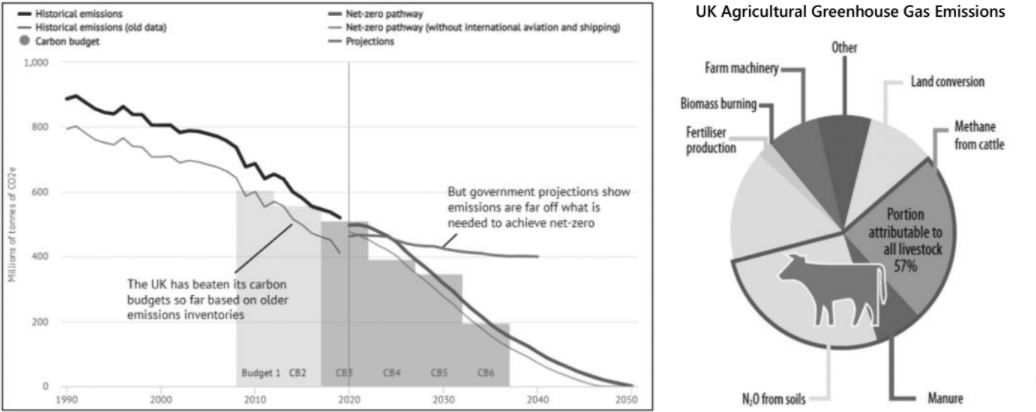Let’s Talk About Climate Change
By James Hitchcock, Chief Executive Officer, Radnorshire Wildlife Trust
Article first appeared in the RWT Newsletter Issue No. 99, Summer 2021
Climate change is the second biggest threat to nature, after its direct destruction. We've known the impact of our actions for some time now. The Wildlife Trusts have talked about what will happen as the climate changes since the 1990s. But yes, it's about more than talk. We need action and we are taking action.
Radnorshire Wildlife Trust, along with the other 45 Wildlife Trusts, has pledged to achieve Net Zero by 2030. The UK must reduce its emissions by 68% by 2030 if we are to stay within 1.5°C of warming. A huge challenge and we are currently well-off track.
Our Articles of Association state that along with conserving nature and educating and inspiring people about wildlife and wild places, we will promote the fostering of sustainable lifestyles.
We have been quiet for too long. Too quiet on the need for all of us to make changes to the way we live and work. As the years pass it has become increasingly obvious that if we do not speak out, future society will reduce its fossil fuel use and carbon emitting activities in isolation from considerations of nature. Currently just 2.5% of the funding spent on mitigating the effects of climate change is spent on nature and nature-based solutions. We, as a Trust and a movement, need to be clear that tackling nature's loss and adapting to, mitigating, and reducing the impact of climate change are inextricably linked. It is true that Wales’s wildlife has fared slightly better than England's, but that is not much to shout about - there's space for it to have increased by an awful lot more. We are still looking at a marked decline and a decline that is being driven by the impacts of human activity. Species that require specialist habitat or greater levels of variety have declined by more than 75% and 48% of UK moth decline is now attributed to climate change.
Sure, it is true that what we call Nature Based Solutions: wetland re-creation, peat bog restoration and protection (we don't have a local figure but 80% are damaged in the UK), regenerative agriculture, agroforestry and wilding will only capture enough carbon to remove around 37% of our current annual emissions. But this is about more than carbon. Our Ecological Footprint is as important as our carbon footprint. Nature Based Solutions can help address losses, while providing space for wildlife to move around and adapt; to absorb water from increasingly intense rainfall, reducing the impact of flooding and alleviating the risk of drinking water shortage as droughts increase. RWT, like many Trusts, started to think about landscape scale conservation in the early 2000s, which was fuelled by the Lawton review in 2010. The maxim of more, bigger, better, more joined up has been written thousands of times in magazines, emails, and talks. We are now at the logical climax of this. A climax where we think about more than just land: we must think from source to the sea, and about the air, water and the land. And most of all, we must think about our impact with each mouthful, each mile travelled, each one-click buy.
RWT has calculated its carbon footprint. Our baseline year is 2019/20, our emissions being 98.2t CO²e. Our biggest sources are the livestock used for grazing our sites (81%), and travel (10%). No surprise for a rural area.
So, what does this mean? We have developed a strategy aiming for a 10% reduction a year for the next 5 years. We will start by looking at our heating and insulation at Gilfach and Warwick House. Working part of the week from home will help with travel. We will need to find funding to help us make these changes.
We have increased our staff, which means our gross emissions figure will increase. We'll need to work out a CO²e per person and work to this figure for travel. We must live our values; we must undertake this work. To do otherwise would undermine any work we do to enhance nature.
We are on a learning curve needing new skills, new contacts. This is exciting and slightly daunting. However, we must show that change is possible, that we can live modern lives in a low impact way and, most of all, we must inspire, encourage and help people to make changes in their own lives, while holding to account those with the power to make systemic changes.
